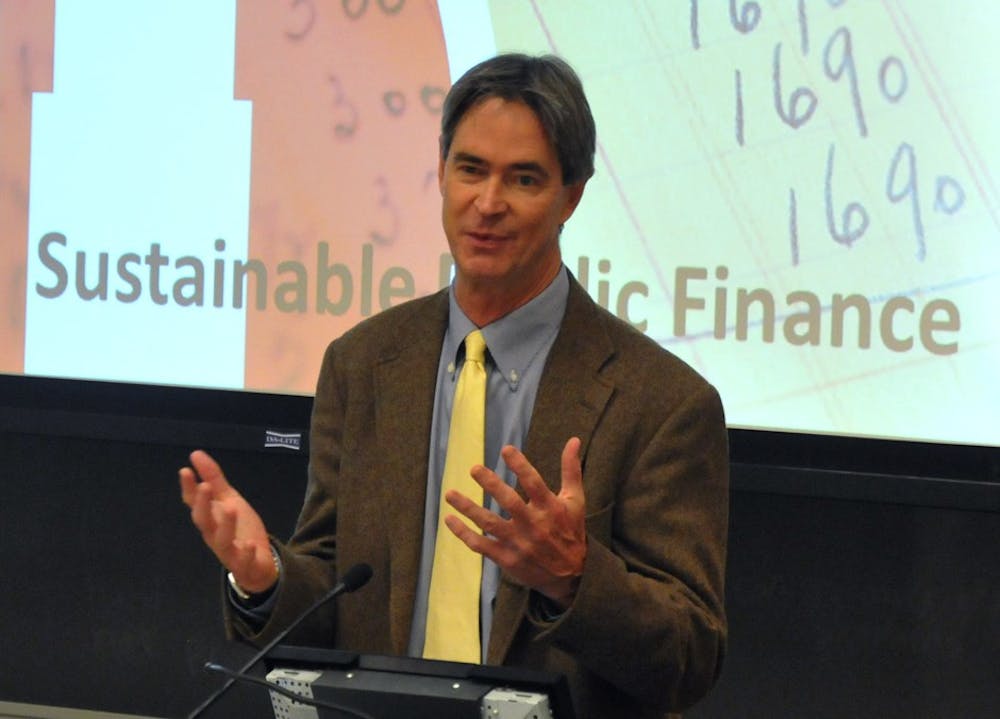As Harrisburg, Pa., filed for bankruptcy on Wednesday, the issue of sustainable public finance was a hot topic in Huntsman Hall.
A panel discussion sponsored by the Penn Institute for Urban Research along with the Fels Institute of Government on Wednesday afternoon invited experts on topics from fiscal policy to pensions to discuss ways to make public finance more sustainable.
Robert Inman, a Wharton professor who researches fiscal policies said the federal government can take an active role to reduce wealth gaps. Inman, who has advised South Africa and Sri Lanka’s governments in the past, believes governments should intervene in areas that the market neglects. He encouraged spending on public goods such as highways, public defense and education to reduce wealth disparities.
However, problems often occur when governments implement policies poorly. “We gave them the tools,” he said, but “the actual management … is where [problems] end up happening.”
Politicians often focus on the short run instead of the long term, he added.
Other experts also cited the “spend today and pay tomorrow” mentality as a source of major economic problems.
“We’re dealing with a very fragile economy [that has] potential for greater defaults,” Managing Director of Public Finance for Moody’s Investors Service Jack Dorer said.
The economy’s slow recovery rate makes it susceptible to new problems, such as those related to pensions.
Pensions are literally using one’s job to invest in the future, according to Olivia Mitchell, a Wharton professor and executive director of the Pension Research Council.
Her research has found that about 25 percent of public sector workers are not a eligible for Social Security but rely on government pensions.
For Mitchell, therefore, pensions are the “longest-term financial contract that you can imagine” and poor planning can lead to serious problems.
As life expectancy in the United States increases alongside growing inflation, new problems arise. Inman believes that pensions and Social Security will pit younger generations against old generations as they compete for limited resources.
It is estimated that later generations will have to use 40 percent of their income to give future retirees the money that they are currently being promised, Inman said.
Recently, problems such as these have inspired unrest through the Occupy movement, which made its way to Philadelphia last week. Discontented individuals are campaigning for changes to the system.
The topic of sustainable public finance drew people to the panel from outside of the University. A Rutgers doctoral candidate, Katie Himmelfarb, attended the lecture, along with a city worker and an entire class from the School of Social Policy & Practice, a Master in Social Policy class.
“The management problem is the most pronounced and looms in the future,” Inman said.
And all the experts agree: the best way to deal with these problems is to begin talking about them.



